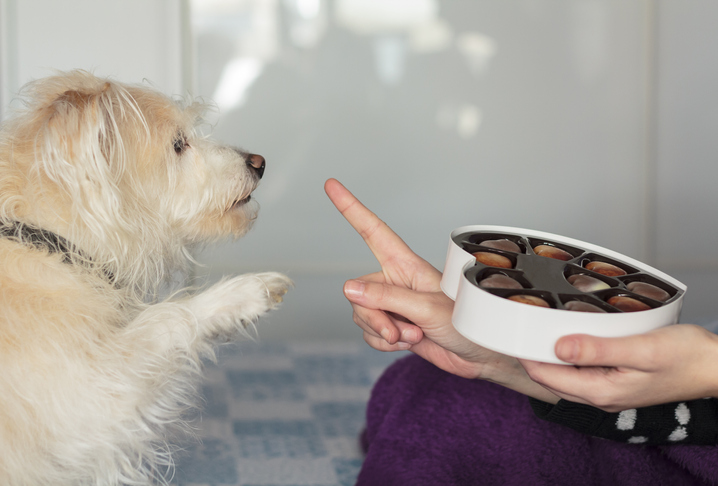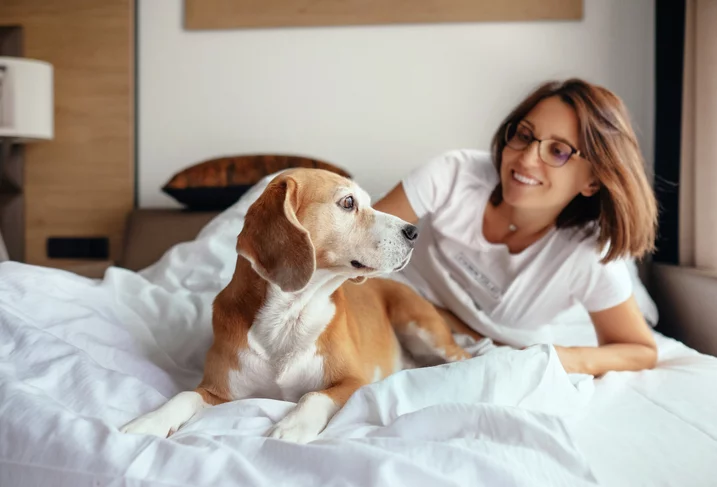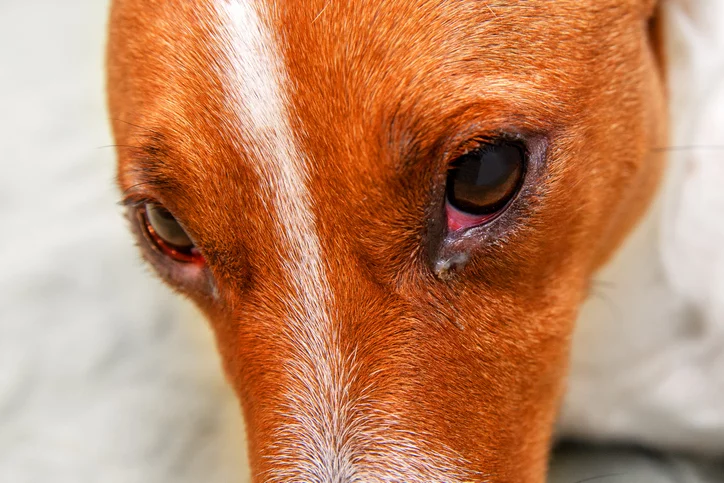What Causes Hot Spots on Dogs in Plymouth Meeting, PA?
Does your dog have hot spots? Many dogs suffer from this skin condition, and if your dog is dealing with stubborn hot spots that just won’t go away, it’s important to recognize what could be causing this issue in the first place.

In the article below, we’ll show you six of the most common causes of hot spots on dogs. Use this information to see if you can remove or reduce some of the factors that contribute to your dog’s hot spots. Don’t forget to talk to your veterinarian in Plymouth Meeting, PA if you have any other questions or concerns.
6 Common Causes of Hot Spots on Dogs in Plymouth Meeting, PA
Below are some common reasons why your dog may develop hot spots:
Allergy
Any type of allergy that causes your dog to feel itchy can contribute to hot spots. As your dog tries to relieve her itching, she may lick or chew at a specific point on her body until she causes a hot spot to form.
Pollen allergies, contact dermatitis, food allergies, and allergies to fleas can all cause this problem. If your dog suffers from frequent allergies, talk to your vet about putting her on an allergy medication to help alleviate some of the symptoms.
Fur Mats
Dogs with poor grooming or poor hygiene may develop hot spots more quickly than dogs who are well-groomed. If your dog has matted fur, she may be prone to chewing at the mats to try to get rid of the irritation they cause. This, in turn, causes an open sore that is prone to infection from the bacteria present in the fur mat.
Additionally, if a dog with matted hair gets wet, the mats don’t dry quickly. This causes the skin to stay moist and leads to the perfect environment for the formation of hot spots. Keep your dog well-groomed to prevent these issues.
Boredom or Stress
Dogs in Plymouth Meeting can get bored or stressed just like humans can. If your dog becomes badly bored with nothing else to do, she may start chewing on her feet or legs. This can quickly turn into an obsessive behavior that leads to hot spots.
Additionally, dogs who are stressed may chew on their feet or legs much like humans might bite their fingernails. This habit can get out of hand just as quickly as boredom chewing, and it can cause your dog’s skin to become a prime target for hot spots to grow and spread.
Prior Skin Infections
Dogs who already have a skin infection are at a much higher risk of developing hot spots than those who don’t. This is because the skin is already dealing with the presence of a fungus or bacteria that can build up and cause hot spots to form in a short amount of time.
If your dog has a skin infection, work with your veterinarian in Plymouth Meeting to figure out the right treatment. Make sure you stick to the treatment and do what the vet tells you, even if this involves preventing your dog from going swimming or getting a bath for a little while.
Bed Sores
Technically hot spots aren’t the same as bed sores, but the two can go hand-in-hand. Bed sores are caused when dogs put too much pressure on one part of the body for too long, and this is most commonly seen in older dogs who have trouble moving from one position to another while sleeping.
When these sores occur, dogs may start licking or chewing at them to try to deal with the pain and irritation they cause. This can cause the sores to become more prone to turning into hot spots the longer the licking goes on.
Bites and Stings
Finally, bites and stings from insects can also cause the formation of hot spots on dogs in some instances. Bites and stings, even when non-venomous, can be irritating to dogs. They may lick the bite or sting over and over again to try to stop it from itching or hurting, but this can cause an open sore to occur instead.
From there, bacteria makes its way into the sore and quickly causes a hot spot to flare up. If you see that your dog has been bitten or stung (and you have ruled out any venomous insects), try placing cool compresses on the bite to relieve the irritation, then thoroughly dry your dog’s skin and hair afterward.
Contact The Village Vets Plymouth Meeting for Your Dog’s Hot Spots
Hot spots are not dangerous themselves, but they can sometimes contribute to more severe skin infections. They can also be very difficult to clear up and can cause pain and irritation for your dog. For all of these reasons and more, it’s important to do your part to prevent hot spots before they ever occur.
If your dog already has hot spots and you just can’t seem to get rid of them, you’ll need to take her to the vet. The vet can help figure out the best treatment option and prescribe medication, in some instances, to help your dog’s body heal faster. For more information about hot spots on dogs, or if you’re wanting to schedule an appointment for your pet, call our team at The Village Vets Plymouth Meeting today at (484) 820-1700.
Recent Posts
About The Village Vets
The Village Vets of Plymouth Meeting offers excellent service to clients in a comfortable, friendly atmosphere. To learn more about us and how we can better serve you and your pet here in Plymouth Meeting, PA, click the button below.
Share This Post
Recent Posts
About The Village Vets
The Village Vets is a network of three animal hospitals based in Atlanta, GA and the surrounding area. We offer honest, excellent service to our clients in a comfortable, friendly atmosphere. To learn more about our locations and how we can better serve you and your pet, click the button below.




